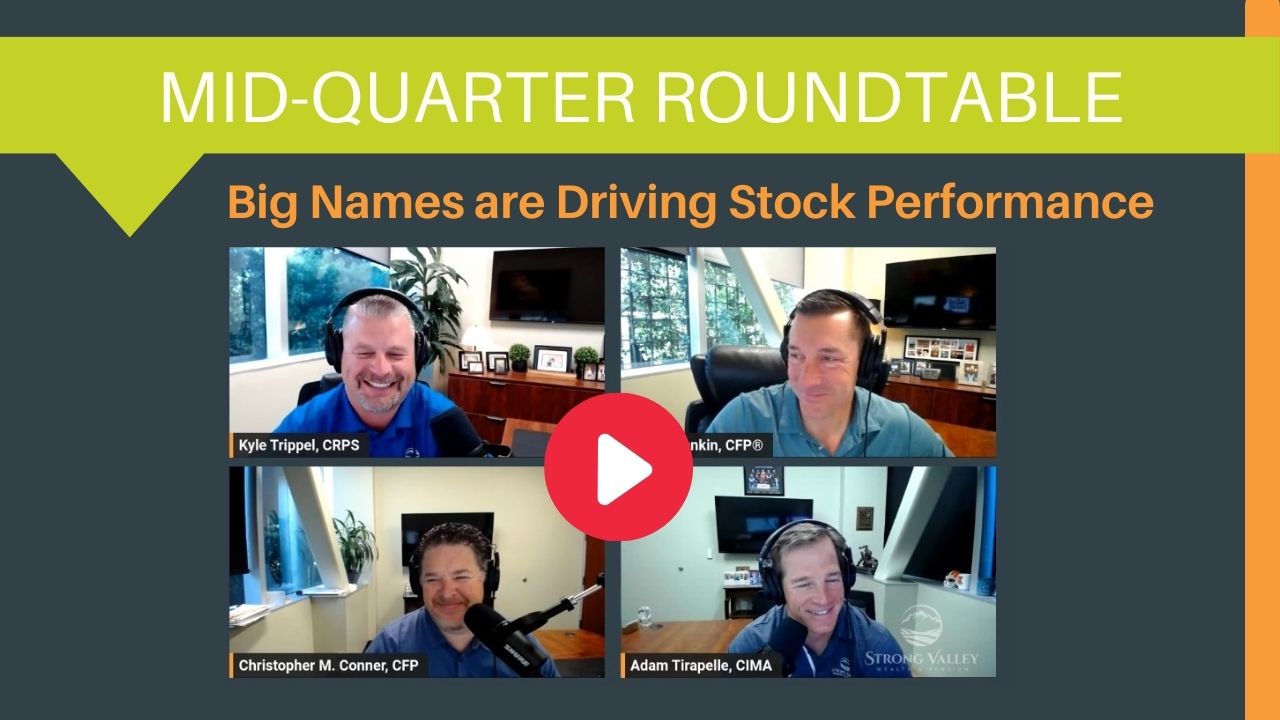You are now leaving the Strong Valley Wealth & Pension, LLC ("Strong Valley") website. By clicking on the "Schwab Alliance Access" link below you will be entering the Charles Schwab & Co., Inc. (“Schwab”) Website. Schwab is a registered broker-dealer, and is not affiliated with Strong Valley or any advisor(s) whose name(s) appears on this Website. Strong Valley is/are independently owned and operated. Schwab neither endorses nor recommends Strong Valley. Regardless of any referral or recommendation, Schwab does not endorse or recommend the investment strategy of any advisor. Schwab has agreements with Strong Valley under which Schwab provides Strong Valley with services related to your account. Schwab does not review the Strong Valley website(s), and makes no representation regarding the content of the Website(s). The information contained in the Strong Valley website should not be considered to be either a recommendation by Schwab or a solicitation of any offer to purchase or sell any securities.

Analyzing your past financial decisions is essential to changing behaviors. Once you take that difficult but transformational journey into the past, you can begin to see reality with new clarity through the help of others. This article takes a lesson from Scrooge’s transformation and reveals many considerations that apply to real-world financial planning.

As Charles Dickens tells us in his celebrated Christmas fable*, the self-defeating ways we behave financially are rooted in the past. Digging them out is the best way to fix what’s wrong.
The first step in changing problematic financial behavior is to become open to admitting that improving how you act is important, and then seriously contemplating making the change. Ebenezer Scrooge in A Christmas Carol took that step when he heeded a warning from the ghost of Jacob Marley.
The next step in financial transformation is the most difficult and requires the most courage. It is revisiting the events in our lives where our strongly held delusions were formed. Scrooge initially resisted this step. Yet his guide, the Ghost of Christmas Past, gently turned him toward the past.
Looking clearly at entrenched financial delusions isn't easy. Many people want to focus instead on learning more about how to save, invest or spend wisely. Yet dwelling on present-day concerns, before visiting the past, is often ineffective.
What’s needed most for transformation is emotional intelligence, which you cannot learn academically or all by yourself. You learn the lessons emotionally, experientially, and in community. Just as Scrooge found a guide in the Ghost of Christmas Past, people wanting to gain emotional intelligence require the assistance of a financial coach or therapist. This is a journey you cannot take alone.
Once you take that difficult but transformational journey into the past, you can begin to see reality with new clarity. Once you gain emotional intelligence, you have the opportunity to replace faulty beliefs with accurate cognitive information. This is the time for learning about budgeting, debt reduction, investments and other financial skills.
Scrooge's guide, the Ghost of Christmas Present, helped him negotiate the current day and obtain this knowledge. Our real-world guides may include accountants, attorneys, financial planners, educational books and workshops.
When you gain accurate financial knowledge, you are ready to look toward the future to see where previous delusions potentially were taking you. Like the vision that the Ghost of Christmas Future unveils before Scrooge, the scene is often harsh. However, because of your preparation, you have the capacity and tools to enter the action phase.
Now you can begin to create a future that is consciously and deliberately planned. You can start to take control of your money rather than your money controlling you. Your guide can be your financial advisor.
Many try to shortcut the transformation process by starting with looking at the future. Sadly, without first taking the critical steps of viewing the past and learning the present, you often lose heart. This is why resolutions for financial change tend to fail, not because the goal is bad or unattainable, but because you are unprepared to go into action.
Giving the gift of a financial transformation is not possible. It is a gift that you can only receive. This Christmas and New Year, perhaps it's time for you to receive yours.
*refers to A Christmas Carol by Charles Dickens, 1843



